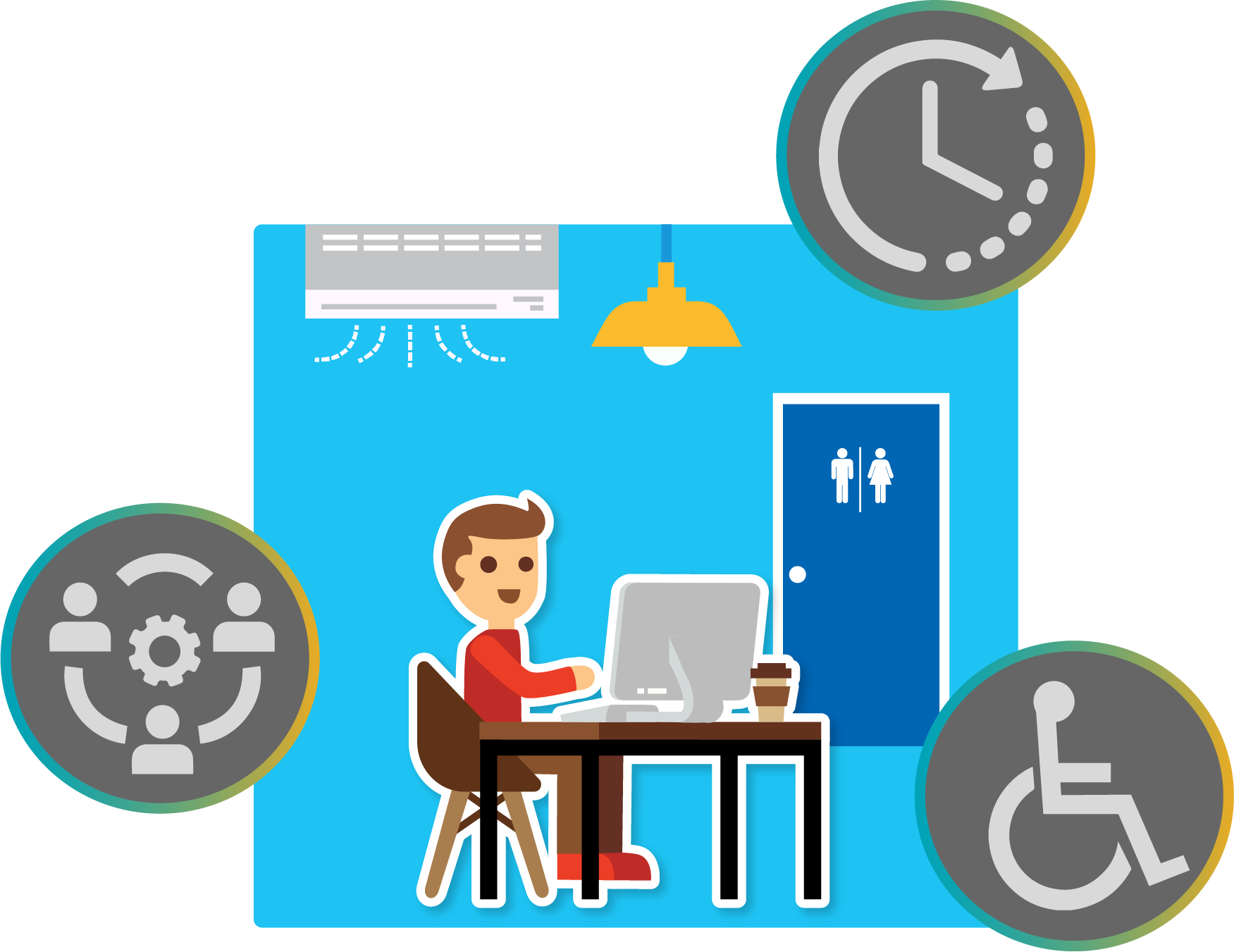Tips for Employers

Multiple Sclerosis most commonly affects patients between the age of 20 and 40, who are at the prime time of their lives and many belong to the work force of the community. However, they also suffer from a wide range of symptoms, which may impair their ability to work.
In 2014, the HKMSS conducted a ‘Socioeconomics Survey’ among MS patients, and found that two thirds of subjects fell in the age group of 26 – 45. More than 90% have completed secondary school education or above, and while 55% were still working after the diagnosis of MS, nearly half became unemployed or had a job-change following their diagnosis. This implied that a large proportion of highly educated individuals were forced to quit work due to MS. Prior to the disease, 45.3% responders were the breadwinners of their family, and this number fell to 28.3% after MS was diagnosed.
Among the many symptoms that affect MS patients, fatigue, impaired mobility and difficulty in concentration were the main reasons that led to unemployment. While treatment and disease control were important issues in MS management, support and understanding from people in the workplace were equally important. Many MS patients were still able to work with support and understanding from their employers and colleagues, and small accommodations can make a big difference to an MS patient’s productivity and performance on the job.
In 2015, the HKMSS made a few practical tips to employers, which can hopefully help them retain highly capable individuals affected by MS in the work force.

Flexible Working Hours
Fatigue is the most common symptom experienced by MS patients. Many also require regular hospital follow-ups and medications. Employers may consider giving them flexible working hours, small breaks between work, or allow them to work from home.

Job Responsibility Modification
Some MS patients may become physically impaired but remains highly functional in certain aspects. Employers can consider restructuring their job responsibilities to let them contribute to the workplace in new ways.

Workplace Modification
Many MS patients suffer from mobility issues, and some require walking aids. Employers can consider relocating their workstations to more easily accessible positions which are closer to washrooms or air-conditioner vents, since heat is another factor that may worsen MS symptoms. It would also be helpful to make facilities wheelchair-friendly, such as washrooms, elevators, or even designated parking spaces.
With the understanding and support from employers and people in the workplace, many MS patients can still shine and contribute to the society. Remember, it is the ability, not disability, that counts!
